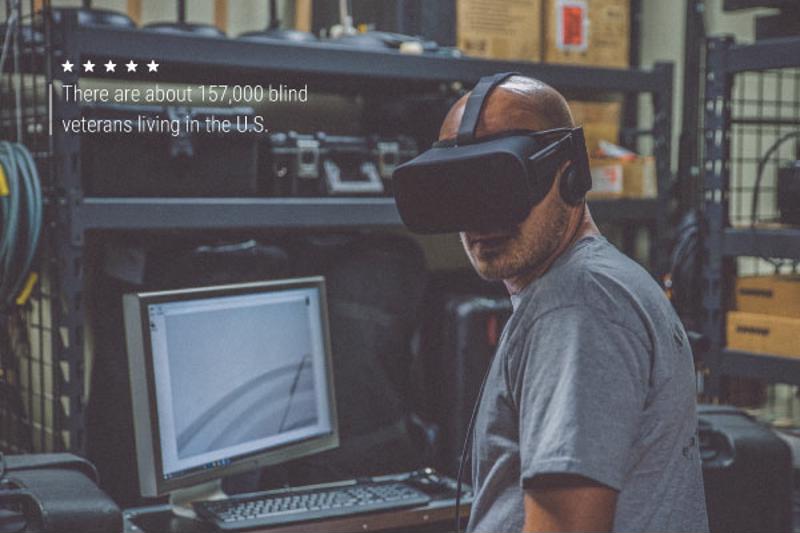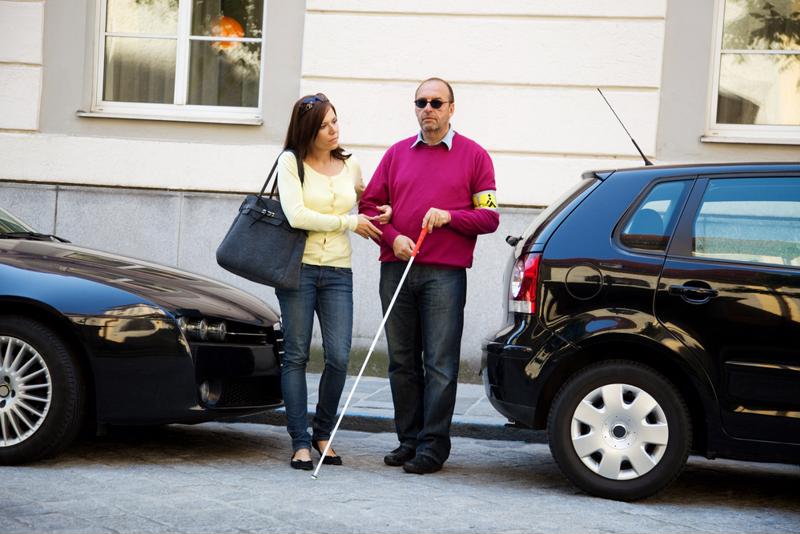A new partnership between a technology company and a wounded veterans service would provide smart glasses to former servicemembers suffering from vision problems. According to U.S. Veterans Magazine, the Wounded Warrior Program, Minton-Jones Company and Ability One vendors are working with Cyber Timez, Inc., a company that designs augmented reality applications for smart glasses, to bring these novel devices to veterans with blindness or low vision. The project would help such vets live more independent lives.
The smart glasses are equipped with a high-definition camera and an optical character recognition engine, allowing them to effectively "read" text and transmit it aloud to veterans. The sound waves go directly into the ear, so whatever the wearer is reading remains private and he or she doesn't disturb others. The glasses are also independent of the cloud, so veterans don't need an internet connection to use them.
With this technology, blind and vision-impaired veterans can effectively read signs, manuals and any other text or documents without assistance. The software can read text in over 100 languages, identify over 16 billion objects, scan barcodes to identify various products and interpret more than 1,000 colors. It even has the capacity to decipher a person's mood based on his or her face. The glasses can also magnify details up to 15 times, which can be life changing for veterans with low vision.
"Our goal with this project at the Wounded Warrior Program is to outfit thousands of American veterans and wounded warriors impacted by low vision and blindness, both men and women with smart glasses to help them find jobs, improve their quality of life and give them financial independence," said Wounded Warrior Program National Director Dr. David Godbold.
When it comes to the issues servicemembers face, most people think of amputated limbs and traumatic brain injuries rather than vision problems. However, blindness and vision impairment are both combat risks and have already affected thousands of veterans.

Blindness as a result of combat
According to the U.S. Department of Veterans Affairs, there are about 157,000 blind veterans living in the U.S. The VA estimates at least an additional 1 million veterans are visually impaired.
For many veterans, these disabilities are caused by standard issues such as age-related macular degeneration, diabetic retinopathy, stroke, cataracts and glaucoma. Nevertheless, their service is reason to include such naturally developing conditions under the umbrella of "veterans issues."
That said, veterans can also suffer vision problems as a side effect of traumatic brain injuries. According to the VA, blindness or low vision affects as much as 64 percent of servicemembers with TBIs.
While experiencing vision loss can be frustrating, veterans shouldn't lose hope. They can regain independence with technological innovations like smart glasses and find other assistance through organizations like the Wounded Warrior Program, the Blinded Veterans Association, the National Association of Blind Veterans and the Defense and Veterans Brain Injury Center. They should also look for rehab centers designed specifically for blind veterans, like the Gulf Coast Veterans Rehab Center in Biloxi, Mississippi. As the Associated Press reported, this specific center has helped 173 veterans reclaim their lives.
"It opens those doors for independence once again," said Facility Chief Debra Gilley, according to the Associated Press. "It's wonderful to see somebody who has been sitting at home on the couch thinking that life is not open to them anymore, and to see them out crossing the street and getting out there."
Veterans with vision problems should not seclude themselves from the world. With the help of local disability resources and ground-breaking tech, they can regain the confidence to be active in society once again.


